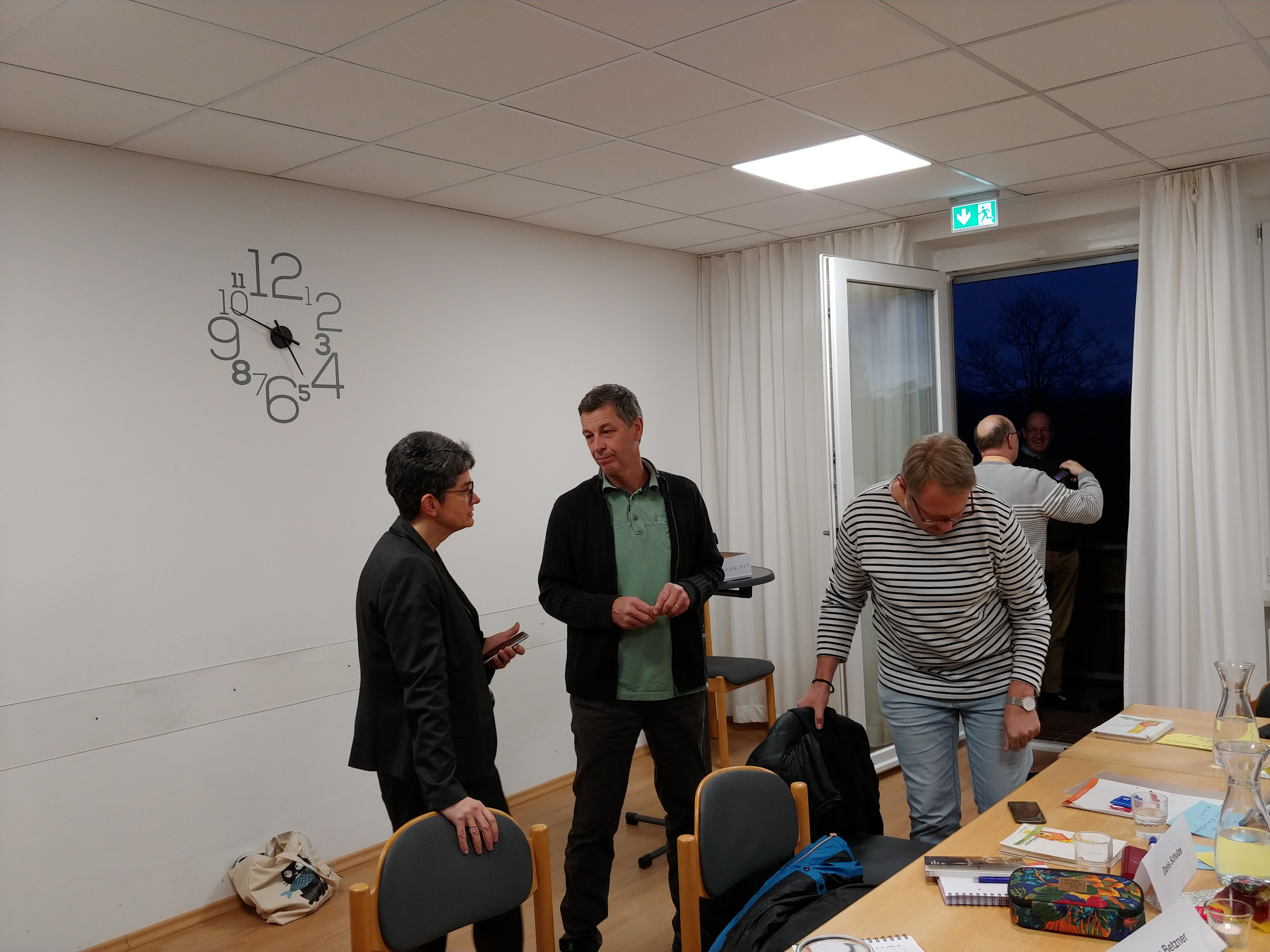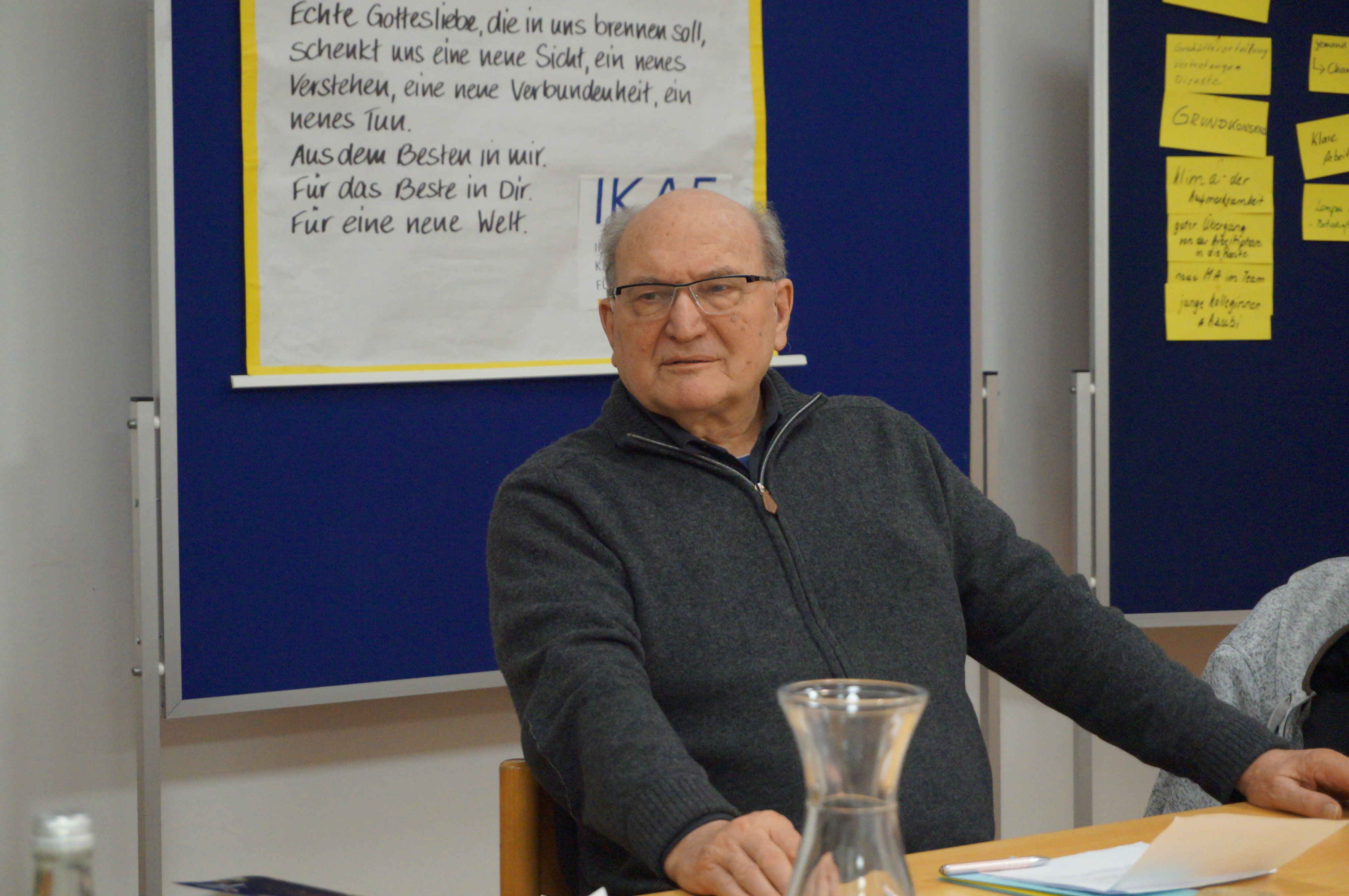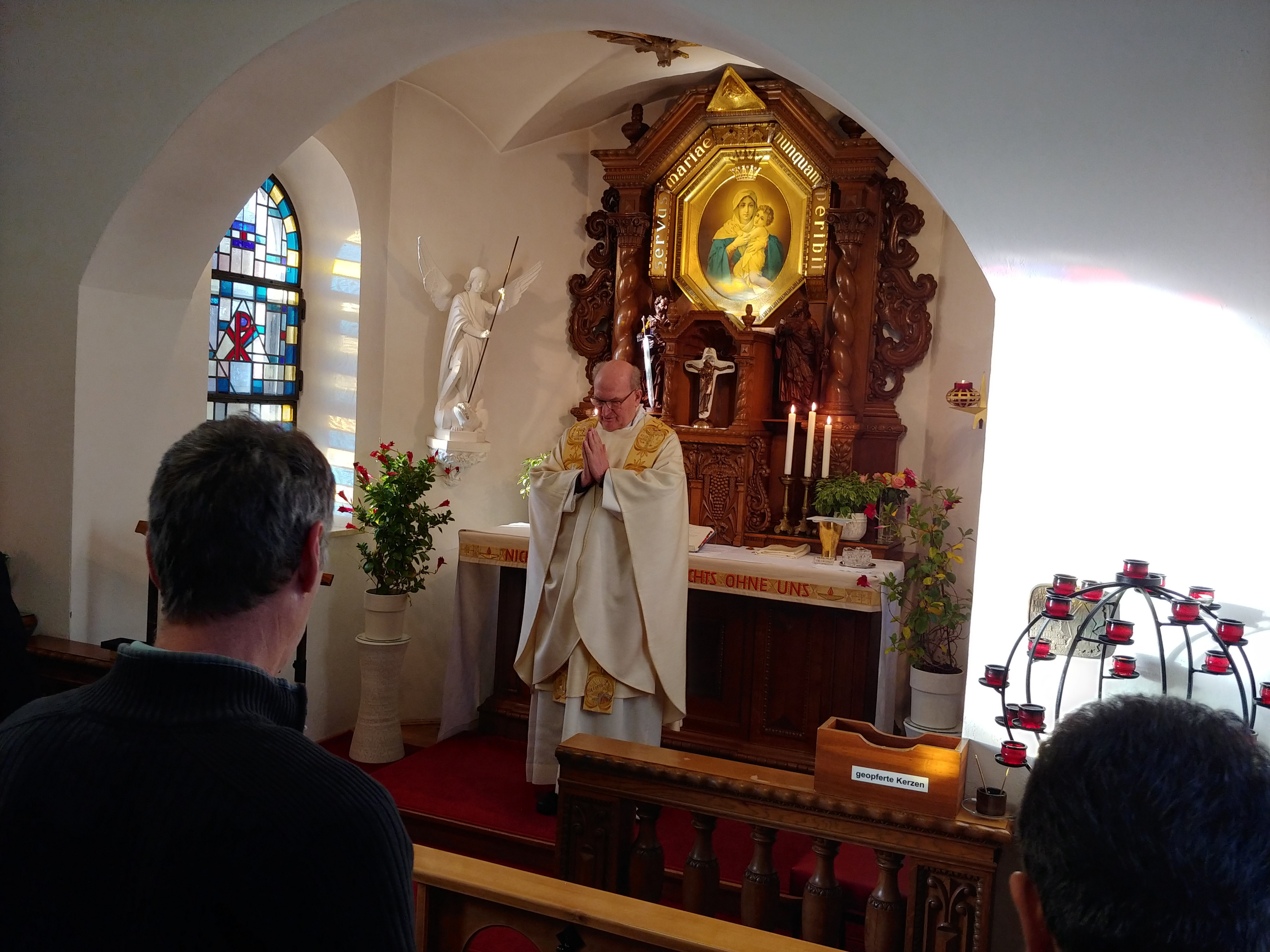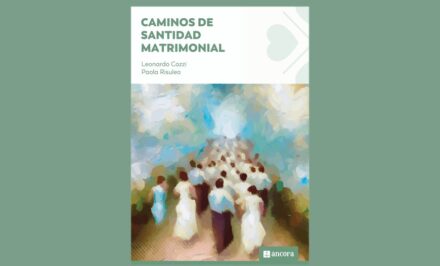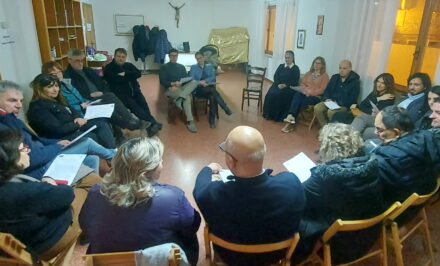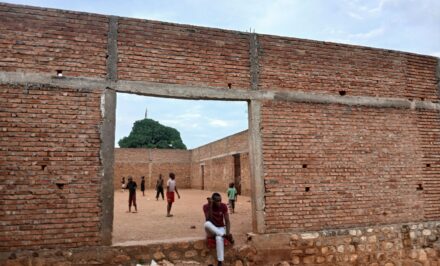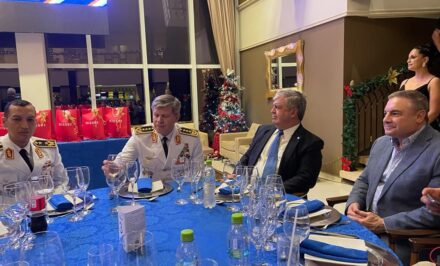GERMANY, Maria Fischer •
He should have taken a selfie. However, even without one we can vividly imagine the face of the general manager who had set out earlier than usual for work – that day important potential investors were due – and suddenly came to a stop in front of a ladder. Right at the top — no, not one of the janitors, but the personnel manager with an electric light bulb in hand. To his perplexed question: “What are you doing up there?” he received the answer from above, and from the assistant below: “Changing the bulb. The investors are coming today, and it has to be bright in here.” —
One of a dozen stories related at the “Round Table Conference” during the last November weekend. Businesspeople and leaders from Switzerland, Austria and Germany met in the Schoenstatt Centre, Memhölz. They are the programme, or rather, their experiences, observations and questions, which they wrote on coloured cards on Friday evening. The questions in the eyes of those who were there for the first time gradually turned into exclamation marks in the course of the following two days: That’s it. The design of a conference and method of presentation taken from real life. It was by no means “just talking” but taking seriously what Fr Kentenich taught to his Movement decades ago: Take the voices of the times and of souls seriously as a source of knowledge for what has to be tackled now.
Added value: Simply trying out successful experiences. It works.
The whole thing didn’t remain with relating experiences. A notary who had recently made himself independent related right at the start that the discussion at the last “Round Table Conference” had motivated him to delegate responsibilities in his chambers more clearly. The result: more efficiency and fewer frictions. Of course, you can get such ideas at a seminar on leadership styles. “But here it comes from life”, he said, as he explained why he wanted to be present next time.
This was underlined when someone in the group added: “Last time as we discussed your problem, I notice that this is what is lacking in a team of volunteers for which I have responsibility. So, I applied the tips you were given, and it did us all good.”
The idea of a leader of a charitable organization could also be tried out. She overcame the sadness caused by the imminent pensioning of three colleagues by asking them to write an article about their years at work. The three “new” colleagues, who were appointed at the same time, also wanted to – and did – write why they wanted this job. “It almost became a book”, the leader said. “Suddenly there was so much joy and gratitude in everyone in the room.”
“The weekend was so intense and filled with so many impressions. We are still so happy that Mr & Mrs X got so involved and realised that they didn’t have to employ coaches in their company but could begin on their own.” That was one comment.
Basic consensus, stuck in his needy love, creative perfectionists
Gathered round the table is tremendous expertise – whether in Kentenich pedagogy, Kentenich communication, coaching, or company management, sustainable development or psychographics (no one left the meeting without knowing about DISC).
There is a long exchange about the unquestioned basic consensus, one of the key elements in Father Kentenich’s communication model, based on the sharing “round the table” of the business leaders..
“On a basic consensus as small as possible, but not questioned, everyone can dance as he wants!” At the beginning of something new – a movement, a company, a group – there is the process of common agreement of what constitutes and distinguishes this new thing. This original soft phase is unique and unrepeatable. This basic consensus thus won becomes identity-creating and therefore also a selection criterion. But only this one, no other norms and forms. Later softening phases can update the basic consensus – or let what has been done so far perish. Then this movement, this company, this group will no longer exist. And: One cannot live 100 years in the soft phase. Then one does nothing more than permanent self-observation, becomes inefficient and untrustworthy. At some point decisions are due: those of the community for its basic consensus and those of interested parties for the community thus defined.
Someone talked about a chef who humiliated all his colleagues to such an extent that they gave up. “He has got stuck in his needy love.” That is taken from Kentenich’s school. “There are people who cannot work in a team because their profound emotional needs and perceptions of love have not been met.” And: “You can only bear something like that if your own need of love has been fully met.”
And the creative perfectionists! Simply the description contained in those two words was enough to make everyone relax.
Could the experiences of a Tertianship for student Schoenstatt Fathers have anything to say to business leaders?
On Saturday afternoon, Fr Peter Locher, Schoenstatt Father, was asked to talk about his experiences with Fr Kentenich, particularly during the “Milwaukee Tertianship”. He was already far more a participant in the group than a speaker. That’s how it should be according to the fundamental consensus of the “Round Table Meeting” of the IKAF.
“Such working groups are important so that we don’t remain on the level of spirituality”, Fr Locher said.
He managed to repeatedly connect his experiences of Fr Kentenich’s education in Milwaukee with the situation in businesses.
Whether it meant insisting on a sensible rhythm of work and free time (whether they liked it or not, the future Fathers in the Tertianship had Thursdays and Sundays free, and on Thursday there as an outing!), or the fact that “men engaged in any type of team or community formation need an object, a medium, on which to work.”
And that is what mattered, Fr Locher said, in this Tertianship. Fr Kentenich observed what “clicked”, and what didn’t, and proceeded accordingly: from abandoning the attempt to draw up Constitutions to working autobiographically instead and achieved the total identification of the young men with the future community for which they would share responsibility.
“Create experiences and keep in vital contact”. This was Fr Kentenich’s advice to the young students, who could hardly speak English, for their youth work – it also fits to working with colleagues. Experiences and ideas did not wait for the end of the talk, but came immediately, to the evident pleasure of the speaker.
Tackle factual questions on the basis of a covenant
The evaluation on Sunday morning collated all the experiences: “You can’t pray away colleagues, sometimes you have to act”, was a “lesson” taken from talking about a fundamental consensus. “We have not learnt subject matter, but a method”, a couple remarked who were there for the first time. However, after a few hours they didn’t even notice it anymore.
“I will create a book of observations at work”, one said who had taken over a new leadership task.
“This is what the Church of the future must be like: Tackle factual questions in the strength of a covenant.” And on a personal level a covenant is what a fundamental consensus is on the level of values and goals. It’s as simple as that!
And then the personnel manager climbs a ladder and changes a bulb before investors arrive.
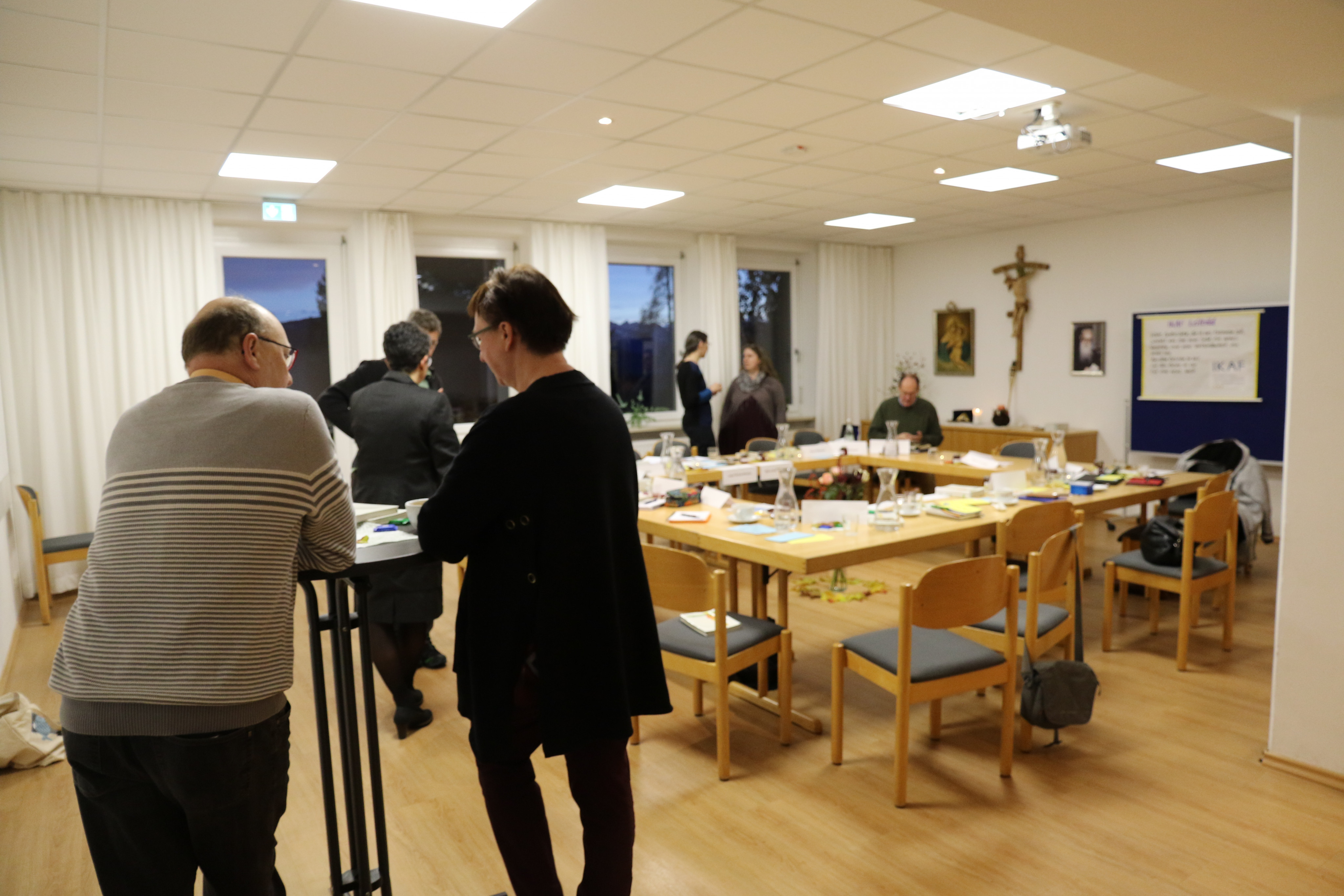 Photos: Grauert, Fischer, Strutz-Winkler
Photos: Grauert, Fischer, Strutz-Winkler
Contact: familie.grauert@ikaf.academy



